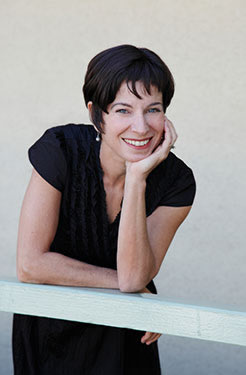|
The word on the street is that writing—the serious practice of any art form, really—is incompatible with parenting. The solitude, silence, and deep focus necessary for writing are the antithesis of the skills needed to take care of an infant. A primary caregiver's days are filled with spontaneous chaos--noise, mess, interruptions. At first, she (or he) can expect no more than 2-3 hours of uninterrupted writing time (assuming the baby naps). If the baby naps twice a day, this number doubles only if the parent has no other responsibilities. Gone are the long, unbroken days of quiet in which to read, think, write. This literal and figurative noise is compounded by fatigue. When baby comes, no one in the house (besides the baby) gets enough sleep. This makes art hard.
Yet the birth of my first child unexpectedly made everything in my life better—including my writing. My colleagues with children encouraged me while I was pregnant: never again will you have writer's block. They were right, not because I would find new material in my children (although certainly I did) but because my writing life became more urgent. I didn't have time to have writer's block. I had minimal child care (by choice), so if I didn't write—with focus and dedication—in those hours when my daughter slept, they were lost to me forever. Procrastination had no place when Ella needed to nurse, nor did it any longer have a place in my writing schedule. To survive, my writing had to become as immediate and present as my daughter. Of course, this was not easy. Often, I felt belated and guilty, a fraud. Then one I day I did the math and realized that Kate Chopin didn't publish her first story until her youngest child was 10. The struggle between life and art was normal. I resigned myself to what Grace Paley called writing at "different paces." I made peace with slow progress. After a few short years of full-time parenting, I knew that kindergarten would claim Ella and release me into a new writing life.
Russell Banks has said that literature "teaches us what it means to be human." Parenting can do this, too. In the Venn diagram of my life and my art, the two occupations overlap consistently, sometimes productively. Both writing and parenting demand stamina and discipline. Both demand honesty. Both demand that I confront conflict. Both call on me to be generous to myself and others. Both demand a sense of purpose, which on some days is the only thing that keeps me from despair. Both routinely stage my failure. In order to write or parent well I must show up, every day. I must be fully engaged in finding meaning (and sometimes beauty) in what Gertrude Stein calls the eternal present. In those early days of Ella's infancy, whether I changed a diaper or a verb, I learned to pay attention and be responsible: to Ella, to my writing, to my life. It was neither easy nor fun, but it was all human.
I am not the same person I was before children, and it's not just because my routine is different. I am filled with what Emily Dickinson called "internal difference/Where the Meanings, are." The biggest change is not that my life is full of laundry and tantrums and schedules that are not my own. The biggest difference resides in my point of view: how I see and understand the world, how I empathize with other people (or not)—beginning with my children. Day by day, word by word, parenting and writing are how I capture and communicate some of life's messy, miraculous truths, and that is why I work hard to maintain writerly discipline even when all I really want is sleep. That is why I am rigorous in exercising my craft. My life, like the lives of all mothers, possibly all parents, has been split into a before and an after. Writing and parenting can be supremely incompatible, but the double life of motherhood has filled the most ordinary moments of being with urgency. Paying attention to that, as Virginia Woolf knew so well, is any writer's lifeblood.
Offered in the spirit of cultivating balance, here are a few things that helped keep me writing as a new parent:
- Cultivate discipline: write during one nap, every day.
- Know where you will start the next day.
- Give yourself small projects: a scene, a passage, a chapter.
- Know exactly what you can accomplish in 2 hours.
- Carry small notebooks. Write everything down. You will forget.
- Don't waste writing time journaling. Do the real work of finishing that scene, passage, chapter.
- Don't use writing time to read.
- Maintain silence. When writing turn off your phone, close your browser windows, do not check email.
- Resign yourself to writing at different paces.
- Embrace the change in yourself and your life.
|


